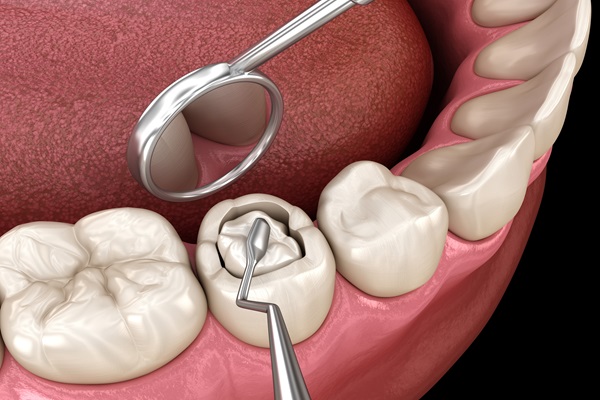Gum Recession and Sensitive Teeth

Sensitive teeth and receding gums often happen at the same time. Physical changes in your teeth can affect their function and sensation. Teeth sensitivity and gum recession may take away the joy from eating your favorite foods. If you want to know more about sensitive teeth and gum recession, here are the details.
What tooth sensitivity is
A person has sensitive teeth when the teeth have exposed dentin. The tooth roots have small tubules. These lead to the tooth’s pulp or nerve center. The dentinal tubules pass the sweet, cold, sour, or hot foods to the pulp. That is why the individual feels pain.
What gum recession is
This is a condition in which the gums pull away from the tooth. Gum recession happens over time. Years of brushing hard may cause this. Periodontitis is also one of the causes of receding gums.
The causes of sensitive teeth
Tooth sensitivity develops from many factors through the years. The most common cause is hard brushing. Using a hard-bristled toothbrush and pressing it against the teeth while brushing pushes the gum tissue upward or downward. Gum disease can also lead to this gum condition. This disease removes the gum tissue covering the tooth roots. This gives way to the pulp’s exposure to foreign elements.
Teeth-whitening products with peroxide and baking soda often lead to sensitive teeth. An individual with broken teeth tends to have the same problem. The opening in the tooth allows the entry of bacteria from the surrounding plaque. This causes inflammation. Jaw clenching and teeth grinding can deteriorate the enamel. This will lead to dentin exposure.
Age is also a factor in having tooth sensitivity. People between 25-30 years old often experience tooth sensitivity. The constant presence of sticky plaque along the tooth surfaces can also trigger sensitivity. Using mouthwash with acids can worsen the pain. These acids also continue to damage the dentin.
Consuming acidic foods can erode the enamel. Vinegar, citrus fruits, and sodas can worsen sensitive teeth. Recent dental treatments can also lead to dental sensitivity. Crown placement, teeth cleaning, and root planing can cause this condition. Gum recession is also a common cause of tooth sensitivity.
The causes of gum recession
The enamel covers the exposed parts of the tooth. It is the primary layer of protection. The unexposed roots do not have dentin. Instead, the gums cover them. A tooth root loses its primary layer of protection once the gums recede. This leads to tooth pain.
Gum tissue does not return to its original position once it recedes. The patient needs to go through a gum grafting procedure. Here, the dentist will harvest healthy gum tissue and then place it on the exposed tooth roots. Preventing gum recession is the most optimal way to avoid having sensitive teeth.
Sensitive teeth often result from gum recession
Taking care of teeth is essential in keeping them healthy. Sometimes, specific factors contribute to the onset of some dental issues. The most common problem is having dental sensitivity. This issue is often the immediate result of gum recession. Seeing your dentist can determine what type of treatment you need to relieve your sensitive teeth.
Are you considering having treatments for sensitive teeth in the Maitland area? Get more information at https://www.emergencydentistinorlando.com.
Check out what others are saying about our dental services on Yelp: Sensitive Teeth in Maitland, FL.
Related Posts
The lifespan of a dental filling is limited. Due to normal wear and tear, a replacement may be necessary. When a filling deteriorates or comes loose, your tooth loses the protection that it has against injury and decay and will be more vulnerable to dangerous bacteria. To avoid more dental issues in the future, you…
A dental crown can save a tooth that is in danger of extraction. Dental crowns serve a dual purpose. They reinforce the tooth structure and improve the appearance of the smile at the same time. This means that a dentist could recommend a crown as a treatment for tooth decay or injury. A cosmetic dentist…
The time and effort that go into fitting a dental crown suggest a permanent restoration. Maybe it is the fact that installing a dental crown often requires multiple dentist visits. It could be the permanence that comes with the removal of enamel before the placement of a crown. Dental crowns that sit on dental implants…
A dental crown is a versatile restoration that can be used to address a wide range of dental issues like a cracked, chipped, decayed, deformed, or broken tooth. The crown covers up the part of the tooth that is visible above the gums, protecting it from further damage and acids made by oral bacteria.The severity…


